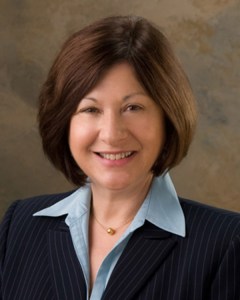PORTLAND — University of Southern Maine President Selma Botman, who was the focus of a controversial facultywide “no-confidence” vote this spring, is leaving the school to take a post at the University of Maine System chancellor’s office.
“President Botman and I considered how we might best move the University of Southern Maine forward,” system Chancellor James Page said in a statement Thursday. “President Botman proposed to me that new leadership might be the best direction to go in and, in a characteristically selfless move, she requested reassignment. I agree with her appraisal of the situation, appreciate her dedication to USM, and support her request.”
According to an announcement by the chancellor’s office Thursday, Botman will lead an effort to expand the system’s international education programs. Her salary was not disclosed.
Page is recommending Theo Kalikow, who recently retired from the presidency at the University of Maine at Farmington, to step into the USM position.
Kalikow was the president at UMF for 18 years and was named to the Maine Women’s Hall of Fame in 2002. While the top administrator at the Farmington campus, Kalikow was credited with creating five new majors and adding 16 faculty members while keeping enrollment steady around 2,000 students.
A vote of no-confidence in Botman was held in early May. Although an overwhelming number of votes cast registered no-confidence in the president, the tally did not meet the two-thirds requirement to be considered the “will of the faculty.”
The vote was 194-88 in favor of the ‘no-confidence’ motion. Of the ballots cast over two days in the first week of May, 68 percent voted ‘no confidence’ in Botman, but because only about 75 percent of the faculty voted, the total fell short of the two-thirds threshold overall.
Shortly after the vote, Page visited USM to meet with faculty, staff and students.
“The fact that this vote occurred is a matter we take very seriously, as it is a meaningful expression of the USM Faculty Senate’s sentiment,” Page said in a statement after the vote. “There are obviously a variety of opinions on how to advance the University of Southern Maine.”
The no-confidence referendum was triggered by a group of senior faculty who circulated a petition in early April calling for the vote, receiving 53 signatures, more than the 10 percent of all faculty required for a petition to mandate a referendum.

Comments are no longer available on this story